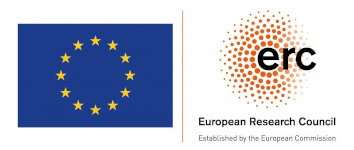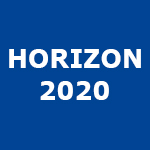Coordinador
Research groups
- TICs and Emotions
- Applied Biomechanics
- Signal Interpretation
- Wireless Technologies, Security and e-Health
- Biomaterials
- Power Electronics
- Smart Environments
- Ergonomics
- Mechanobiology
- Tissue Microenvironment
- Laser Technologies
- Physiotherapy

The Biomedical Engineering Division is a clear example of the multidisciplinary approach of the I3A, bringing together specialists in Biology, Medicine, Physics, Mathematics and Engineering who cooperate to develop technological solutions that improve health and quality of life.
Today's technologies for diagnosis, monitoring, therapy, surgery and assistance to people with disabilities encompass almost all fields of engineering.
General research lines
- Biomaterials and tissue engineering
- Biological and biomechanical modelling
- Biomedical instrumentation and signal processing
- Prevention and care technologies
- Digital twins
- Personalised medicine
Keywords
Mechano-biology, biomaterials, tissue engineering, microfluidics, bioreactors, diagnostic devices, modelling of cell behaviour, microstructural behaviour of biomaterials, cardiac electrophysiology, telemedicine, automatic coding of biomedical signals, biomedical information transmission protocols, smart sensors, computer vision algorithms for human detection, activity tracking and recognition, prosthesis design, mesenchymal stem cells, neurodegenerative disease therapies, prion genomics and genetics, adapted human-machine interfaces, localisation and guidance in indoor and outdoor environments.
Projects
Translational cardioselective RNAi therapies and predictive heart-on-chip to tackle cardiac clinical challenges

In silico framework to improve the personalized prediction of progression and outcomes in thoracic and abdominal aortic aneurysms based on personalized clinical and mechanical biomarkers


Computational modeling of cell culture in dynamically adaptive multilayer microenvironment charged with drug-delivery microcapsules

Extracting the Human Motor Null Space from Muscles - A new framework to measure human neural activity
 ,
, 
Predict and prevent foot pathologies related to hallux limitus and flat feet

In vitro characterization and in vitro/in vivo simulation of the effect of hypoxia and drug dosis in glioblastoma growth

HYdrogel-based Matrices for Advanced Tissue Engineering

Individual and Collective Migration of Immune Cellular Systems
 ,
, 
multI-discipliNary, multi-Sectoral and multi-national trainIng network on Digital biomarkErs for supraventricular arrHythmia charactErizAtion and Risk assessmenT
 ,
, 
In silico models for tendinomuscular injuries analysis using artificial intelligence techniques

Methods for Stroke Monitoring and Diagnosing based on BCG
 ,
, 
COMPUTER-AIDED EFFECTIVE FRACTURE RISK STRATIFICATION OF PATIENTS WITH VERTEBRAL METASTASES FOR PERSONALISED TREATMENT THROUGH ROBUST COMPUTATIONAL MODELS VALIDATED IN CLINICAL SETTINGS

Mental Illness Detection and Clinical Assessment with Reliable Interpretability
 ,
, 
Optimisation of personalised treatments for femoral fractures using digital twins and machine learning
PELVIc Floor Evaluation live TRACKing – Real-time prediction of perineal trauma
 ,
, 
Implementation and validation of a closed-loop neural interface to entrain brain rhythms and reduce motor symptoms in Parkinson's Disease
 ,
, 
Translational Research and Training on Atrial Cardiomyopathy as a Key to Better Atrial Fibrillation Management

Unlocking data content of Organ-On-Chips
 ,
, 
Advanced image processing for early eye disease detection


